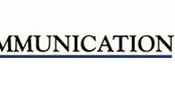Communication Skills Coaching
The Value of Communication Skills Coaching
The Communication Skills Coaching Process
Performance Improvement CME Credit Hours for Coaching
The Value of Communication Skills Coaching
One-on-one communication skills coaching with physicians and other healthcare professionals offers a practical and cost-effective tool to improve patient satisfaction. An experienced coach accompanies the professional for observation and gives private, one-on-one suggestions for improvement.
The process is framed in a very constructive optimistic manner. It is important that the participating professionals understand this is an enrichment process, not a punishment. The coaching experience concentrates on highlighting the current positive skills and changing problem areas.
The Communication Skills Coaching Process
Pre-Coaching Assessment
A representative from the healthcare organization reviews the situation with the coach and contacts the professional to discuss the coaching. The coach then contacts the professional to set up a call. This brief introductory phone call gives the coach a chance to establish rapport with the professional and highlight the positive aspects of the experience.
Coaching Session
On the day of coaching, the coach accompanies the professional during two to three hours of patient visits, noting the positive and negative aspects of the patient encounters. The coach is introduced as a researcher, which nearly always leads to the patient's approval to stay in the exam room during the visit. (The coach is never in the room during sensitive physical examinations.). The process is HIPPA compliant. Initial feedback comes during the coaching session, as the coach reviews observations and recommends techniques to practice. The day concludes with a review of overall observations and recommendations.
Post-Coaching Evaluation
The coach produces a written report of observations and recommendations for the professional with a copy for the healthcare organization representative. To insure the skills continue all professionals are provided post-coaching reinforcement through phone calls and emails.
Performance Improvement CME Credit Hours
Performance improvement (PI) CME activities describe structured, long-term processes by which a physician or group of physicians can learn about specific performance measures, retrospectively assess their practice, apply performance measures prospectively over a useful interval, and reevaluate their performance.
Communication skills coaching awards CME hours by:
- Establishing a mechanism that assures content integrity of the
selected performance measures. The measures are evidence-based and well designed. Improvement activities address a specific process of a physician’s practice (i.e., communication skills) with direct implications for patient care.
- Providing clear instructions to the physician that defines the educational
process of the PI activity and establishes how they can claim credit.
- Validate the depth of physician participation by a review of submitted PI
activity documentation.
- Provide adequate background information so that physicians can identify
and understand a) the performance measures that will guide their PI activity, and b) the evidence base behind those measures. This education is delivered through live activities and enduring materials.
Participating physicians integrate all three stages described below.
- Stage A: Assess current practice using identified performance measures,
either through chart reviews or some other appropriate mechanism.
- Stage B: Learning from the application of performance improvement to
patient care
- Stage C: Learning from evaluation of the performance improvement effort
Reevaluate and reflect on performance in practice (Stage B) by comparing to the assessment done in Stage A. Summarize the process changes that resulted from conducting the PI activity.
|

